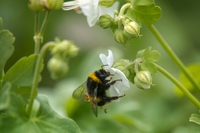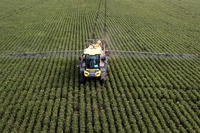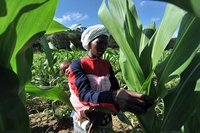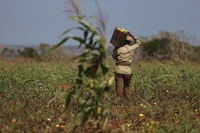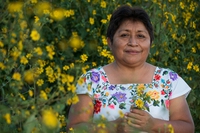
Leydy Pech, the Mayan beekeeper who defeated Monsanto
Leydy Pech, winner of the 2020 Goldman Environmental Prize for North America, is the beekeeper who defended Mexican Maya land against the agro-industry.
Leydy Pech, winner of the 2020 Goldman Environmental Prize for North America, is the beekeeper who defended Mexican Maya land against the agro-industry.
Bumblebees can help plants flower more quickly. However, pesticides, parasites and climate change are putting this key species in serious danger.
Luxembourg announced a ban on all glyphosate-based products by the end of 2020.
Maude Barlow, Right Livelihood Award recipient for the recognition of water as a human right, tells us about what she defines a global water crisis and the risky yet relatively unknown connection between water protection and commercial agreements.
Monsanto is now property of Bayer, and its name has ceased to exist. Agriculture is in the hands of a few large corporations now more than ever, with dire consequences for people and the environment.
Due to a prolonged drought in Zambia, maize production could fall from the current 3.6 million tonnes to 1.8-2 million tonnes this crop season if the current dry spell which the nation is experiencing continues.
Cuba’s example shows that sustainable development isn’t only possible, it’s necessary. This country was forced to abandon its sugar monoculture and has survived thanks to organic agriculture.
Il glifosato è stato autorizzato per altri cinque anni in Europa. I paesi hanno raggiunto la maggioranza qualificata grazie (o a causa del) al cambio di rotta della Germania.
El Costo Humano de los Agrótoxicos (The Human Cost of Agrotoxins) is Pablo Ernesto Piovano’s photo feature dedicated to breaking the silence on the consequences of a growing use of pesticides. Piovano, an Argentinian photographer, has travelled across his country to document the effects pesticides have on people, the result of which is a series of powerful pictures. Now his work has
Corporations are putting our lives and our environment at risk through a growing and improper influence over institutions, whose responsibility should be, instead, protecting people and the planet. The visible consequences have made it imperative to expose their devious tactics and their steadfast and corrupt lobbying, recently revealed in the Poison Papers (a compilation of over
